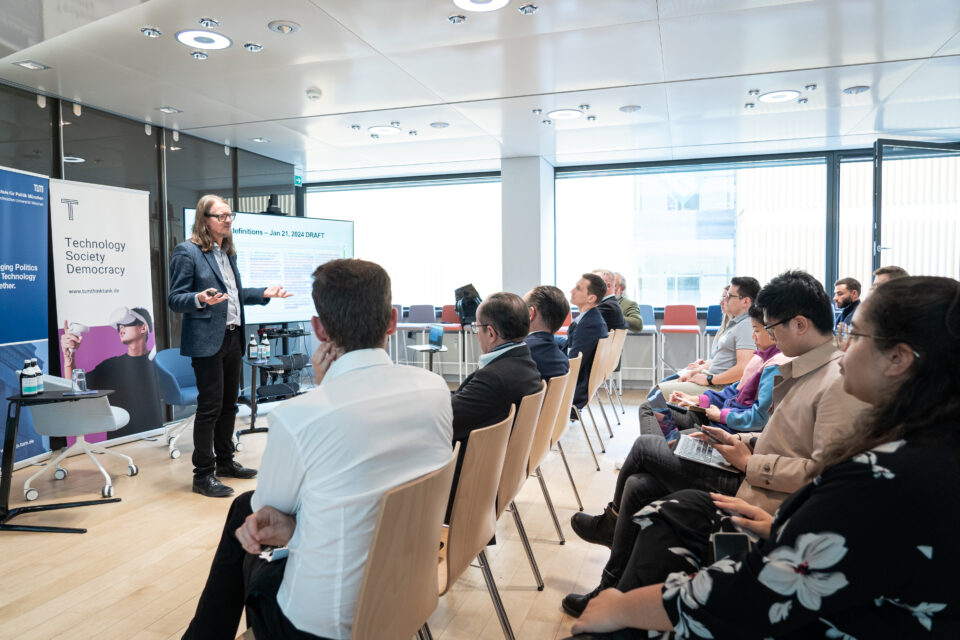TUM Think Tank
Where today's societal challenges meet tomorrow's technological excellence.
The AI Ethics in Educational Technologies seminar at the TUM Think Tank on March 28th was a successful exploration of facilitating critical thinking about AI Ethics Principles within educational contexts. During the day-long seminar, graduate students (Master's and Doctoral level) from interdisciplinary fields engaged in insightful discussions and future-oriented prototyping related to the risks and benefits of AI Tools in education. Through small group work, the students critically unpacked the complexity of AI Ethics in education. One of the groups discussed the use of facial recognition technology in classroom settings and highlighted both the challenges and affordances for teaching and learning. Another group analyzed the potential of AI Ed Tech to decrease the digital divide but also the possibility to increase the digital divide among learners, as students without the resources needed could be even more disadvantaged compared to students who have access to AI-supported learning and therefore are enabled to make use of its full potential.
A key takeaway from the seminar was the crucial role of ongoing competency and knowledge development in navigating the rapidly evolving AI-in-education landscape. Students ideated and visualized several ideas for tools and programs for fostering AI ethics literacy among educators and students. One example was a webpage, which could offer a variety of formats (Videos, Podcasts, Apps) to learn about affordances and constraints regarding AI in education. Another example was the idea of creating a collaborative forum that could provide workshops and teaching material.
The course was conducted by Verena Kappes, a doctoral student at the Department of Education Sciences at TUM, and co-facilitated by Camila Hidalgo, a doctoral student at the Chair of Public Policy, Governance, and Innovative Technology, and supervised by Anna Keune. The course stands in the context of the interdisciplinary research project Co-designing a Risk-Assessment Dashboard for AI Ethics Literacy in EdTech funded by the Institute for Ethics in Artificial Intelligence (IEAI; PIs: Prof. Dr. Urs Gasser (SOT), Prof. Dr. Anna Keune (SOT, IAS), and Prof. Dr. Matthias Grabmair (CIT). The course was organized as part of the TUM Plugin Module initiative to foster novel teaching and learning formats across the university.
TL;DR
During the day-long seminar, graduate students from interdisciplinary fields came together to discuss questions like: Which affordances and challenges regarding teaching and learning arise when implementing AI powered applications in educational settings? What should different stakeholders, i.e. educators, students, parents, be aware of in order to navigate both benefits and risks competently? Based on case scenarios and tangible learning materials, students analysed and discussed these and came up with a range of possible solutions.









